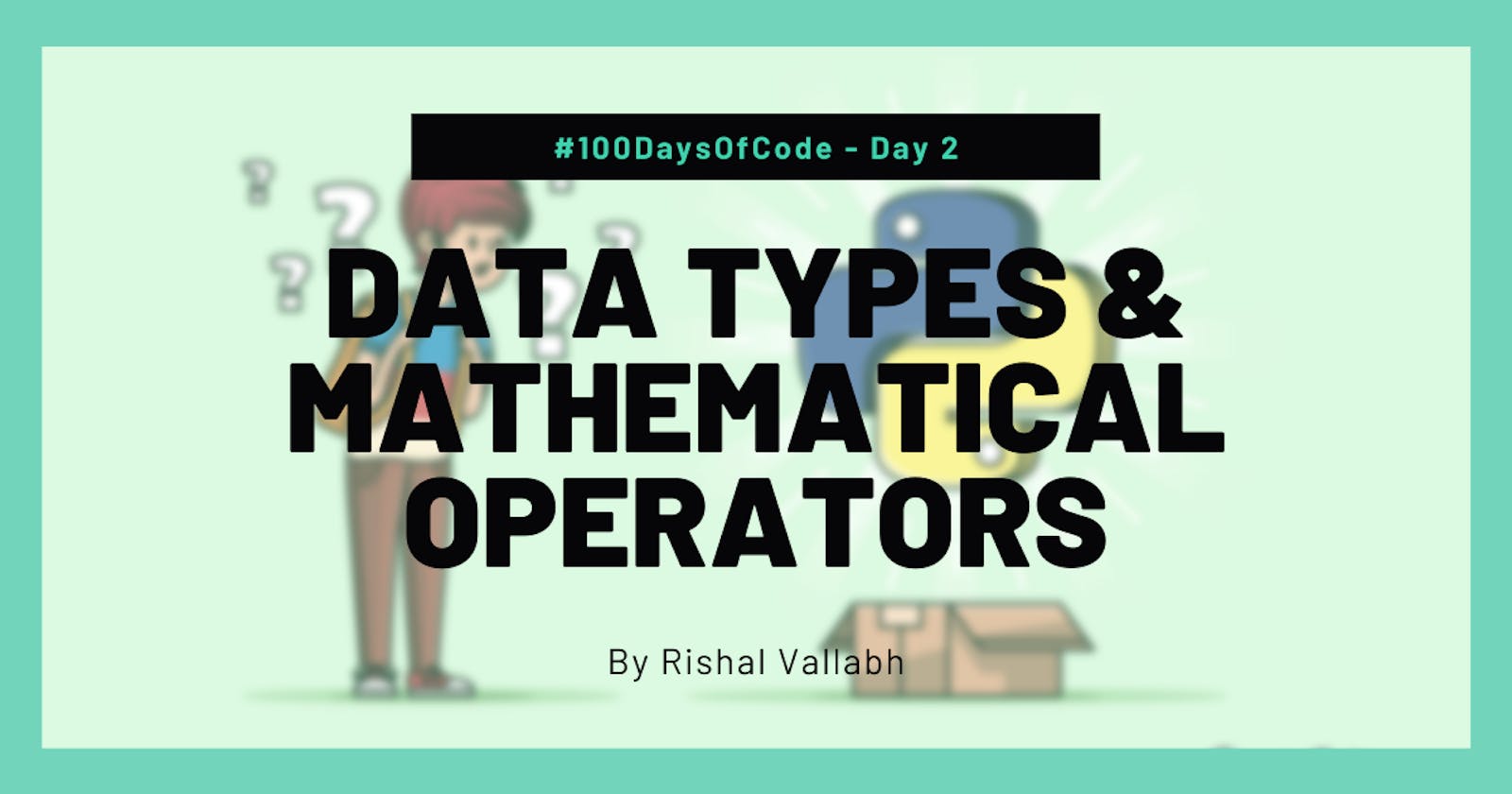#100DaysOfCode Day 2
Yesterday was day two...
I covered Data Types and Mathematical Operators. I can see why this is a good language for machine learning as the syntax for performing mathematical operations are so simple compared to C#.
The Highlight - I built a restaurant bill and tip calculator!
Lessons
- Doing all the tutorials make the quizzes so much fun!
- Overcoming setting up your dev environment is a huge step! I am now happier that my machine is set up.
- I need a template for my posts if I plan to do this daily!
TO THE CODE!!!
dataTypes.py - strings, bools, ints and floats
# Strings
# Subscripting a string
print("Hello"[0])
print("Hello"[4])
# Just concatenates
print("123" + "345")
#--------------------------------------------------------------
# Interger
# This gets calculated
print(123 + 345)
#--------------------------------------------------------------
# Float - has decimal places
print(123.00)
#--------------------------------------------------------------
# Boolean
print(True)
print(False)
#--------------------------------------------------------------
# Understanding Type Errors
# num_char = len(input("What is your name?"))
# print("Your name has " + num_char + " characters")
# Get the datatype!
num_char = len(input("What is your name?"))
print(type(num_char))
# We need to convert this datatype
new_num_char = str(num_char)
# Use float(var) to convert another datatype to a float
num_char = len(input("What is your name?"))
print("Your name has " + new_num_char + " characters")
# Input: Rishal
# Output: Your name has 6 characters
#--------------------------------------------------------------
#f-String
# To print all these datatypes can be a pain but we can use f-String
score = 1
height = 1.7
isWinning = True
print(f"Your score is {score}, your height is {height}, you are winning is {isWinning}")
# Output: Your score is 0, your height is 1.7, you are winning is True
mathematicalOperators.py - PEMDAS!!!
# addition
print(3 + 5)
# subtraction
print(5 - 3)
# multiplication
print(3 * 2)
# division - You will always get a float from this operator
print(6 / 2)
# exponents - 2 to the power of 2
print(2 ** 3)
#--------------------------------------------------------------
# Operators follow the PEMDAS preference of execution
# ()
# **
# *
# /
# +
# -
print(3 * 3 + 3 / 3 - 3)
# Output: 7
# Priority on addition because of brackets
print(3 * (3 + 3) / 3 - 3)
# Output: 3
#--------------------------------------------------------------
# CHALLENGE
# 🚨 Don't change the code below 👇
height = input("enter your height in m: ")
weight = input("enter your weight in kg: ")
# 🚨 Don't change the code above 👆
# Write your code below this line 👇
bmi = float(weight) / float(height) ** 2
print(int(bmi))
#--------------------------------------------------------------
# ROUNDING NUMBERS
print(8 / 3)
# Output: 2.666666666
print(int(8 / 3))
# Output: 2
print(round(8 / 3)) # rounds it to a whole number
# Output: 3
print(round(8 / 3, 2)) # rounds it to a decimal
# Output: 2.67
print(8 // 3) # floor devision
# Output: 2
#--------------------------------------------------------------
# You can perform further calculations if you store it as a var
result = 4 / 2
result /= 2
print(result)
# Output: 1.0
As much as #100DaysOfCode is supposed to be an hour a day, writing an article adds some more time. I really do enjoy writing and sharing this learning journey with you. With that said, I am unsure if I will be as consistent as daily posts like Daily Dev Tips (My biggest inspiration); some days, I may bundle my learnings and share with you a day range.

